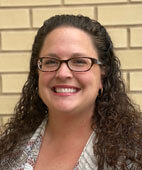by Heather Garcia
AP® Exam scores are coming out soon. There is no stopping that train. The reading is over. The AP® readers have heaved a sigh of relief, and now we wait—some of us for longer than others.
Here is what we ALL need to remember as we move forward, and I am putting myself firmly in this “we” boat: these scores do not reflect who we are as teachers. These scores do not fully reflect our students’ growth throughout the year.
Usually, our students will sit through a comprehensive exam consisting of multiple-choice questions, essays, short responses, and so many scoring components that you need a math degree to calculate a score.
This year, that wasn’t the case. Some tests had a three-minute oral exam as their entire test. Some tests were truncated to one of three essays without any multiple-choice questions to balance the weight—their entire score was based on one single essay.
While I understand why College Board made these changes, and I am grateful that colleges around the nation are continuing to accept these scores and award college credit, nobody is fooled. We all know this isn’t a genuine measure of what our kids can do. This was a quiz, a progress check. This was an experiment created out of necessity. It was impressive in its scale and scope, but it isn’t a true measure of who we are as educators or who our kiddos are as students.
I implore you. When scores come out over the next few days, check them. Celebrate the wins. Let your focus move away from the scores and back to the list of names. Focus on each kid and celebrate winning moments students had in class. Think back to a moment where you saw them understand a concept that they previously hadn’t, where they wrote a short response that was light years ahead of where they were when the year started, or where they analyzed a poem so intensely that they memorized a few lines by accident. These celebrations are going to be worth more than the score to the right of the student’s name.
And yes, some of our kids will pass the test and we need to celebrate those moments as well, understanding that this means earning potential college credit and money-saving opportunities for our students. But we need to remind ourselves, and all of our students, that test scores do not define them. This test, where they had to sit in their houses, praying their family was quiet, hoping their wifi didn’t mess up, shifting on their beds because the laptop wasn’t sturdy—this isn’t genuine testing. This isn’t how high-stakes tests are supposed to be administered. Many of us hadn’t seen our students for nine weeks prior to this year’s test.
Usually, I see my students nine minutes before their tests as I hand them goody bags with snacks and send them marching in a little pack down to their testing room. In that controlled testing space, they have a proctor who handles every component of testing for them except for the intellectual tasks. All the housekeeping is handled, the pencils, the air conditioning, the lighting, accessing the test materials, collecting the test materials—all of this has always been managed for them. This year we threw these kids into the deep end. Some were ready. Some weren’t. This test may not reflect what the kids did or didn’t learn as much as it tests how well they did or didn’t respond to change.
When we look at our test scores, we need to do so with grace, for both ourselves and our students. We need to celebrate the success that we had in the classroom with our students before a pandemic pulled us apart. We need to remember that this test does not define who we are as educators nor does it define who our students are as students—no single test can do that whether it is a 3-hour AP® Literature Exam or a 45-minute AP® Literature exam. We are all defined by more than a number beside our names. Celebrate the wins, and set the rest aside.

Heather Garcia is an English teacher at Charlotte High School, Florida, where she teaches AP English Literature and AP® English Language. She is a professional development leader in her district, running annual new-teacher trainings and is now the Curriculum and Instructional Specialist for her district for grades 6-12. After 16 years of hands-on experience, Heather has developed a series of strategies to help her students navigate challenging texts. Her favorite book is the Steinbeck classic, East of Eden.
 Help
Help